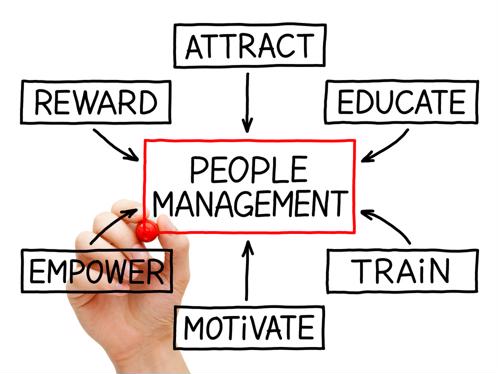
There's simply no doubting the value of human capital management software. According to a 2017 MarketsandMarkets report, which named PeopleStrategy as a major player in the business, HCM sector valuation is projected to be a $22 billion industry by 2022.
Seeing figures like that, small-business owners might think such tools are outside their needs. And in the case of a fledgling startup with half a dozen employees, for example, they're probably right. But what if that startup really takes off and needs to hire a larger full-time staff? At that point, HR software can provide real benefits to the organization and its ability to streamline hiring operations.
Is your growing business ready for HCM technology?

1. Rapid and steady growth
The moment your staff becomes bigger than, say, five or six people, you'll probably need to keep better track of their pay, scheduling and benefits with a tool that's much more capable than a simple spreadsheet. Not only is it important to monitor metrics that are directly connected to HR needs, but you'll also want to use those metrics to gauge your engagement, growth and outlook. Besides, benefits and payroll administration are very difficult to manage without an optimized and centralized system.
A comprehensive HCM platform can handle all of these tasks. User-facing elements of the software can also help employees get a better grasp of what's expected of them, which is useful when you're onboarding many people at once. An HCM portal can relay important notifications from HR staff to workers, and can act as a repository for crucial information, such as the employee handbook.
2. Need for system-wide integration
At a certain point, your small business will likely function on the backs of several software solutions, each handling its own particular duty. To prevent unnecessarily siloed operations and achieve actionable insights, these systems must talk to one another and share data. After all, HR data is important for departments outside of HR.
Tip: If you're looking for a new strategy for integrating your myriad software solutions and improve the flow of HR data, then you'll want to choose an HCM suite with a short implementation period.
3. Stricter work authorization requirements
Worksite enforcement of employee verification regulations is a major point of emphasis throughout much of the federal government, and this trend is only expected to increase for the foreseeable future. Between July 16 and 20, the Immigration and Customs Enforcement agency delivered 2,540 Notices of Inspection to businesses all over the U.S., and has issued more than 5,200 NOIs this year. If your business has a dozen or more employees, you'll want your I-9s and e-verifications in pristine order in case of an inspection and audit. eHCM solutions easily manages all core HR processes involved with onboarding, including documentation.
For more information on whether HCM technology is right for your growing business, contact PeopleStrategy today.